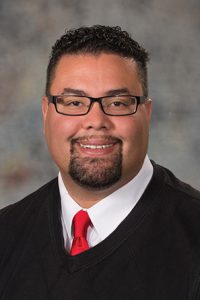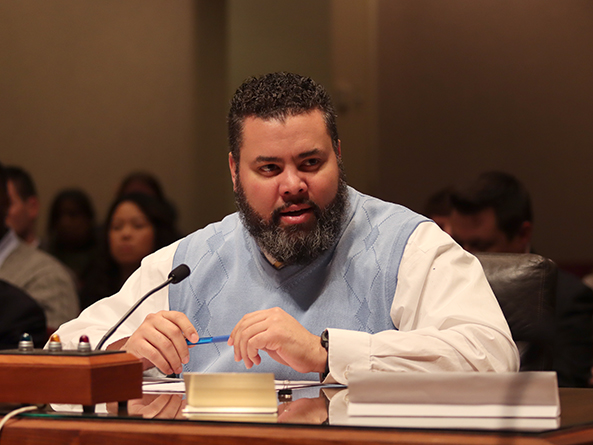PTSD pilot program considered
Members of the Health and Human Services Committee heard testimony Feb. 22 on a bill meant to address the impact of post-traumatic stress disorder in Nebraska’s largest city.

LB792, introduced by Omaha Sen. Justin Wayne, would require the state Department of Health and Human Services to create a pilot program located in a metropolitan class city to assess and treat individuals with PTSD resulting from community gun violence. Omaha currently is the state’s only metropolitan class city.
The bill also states legislative intent to appropriate $25 million in general funds to carry out the pilot project.
Wayne said LB792 is intended to find ways to provide support and access to mental health resources to Nebraska youth who are impacted by community gun violence before they enter the criminal justice system.
“The problem is [that] until you get into the system, there’s no resources,” he said. “[LB792 would focus on] those who are undiagnosed, those who are having problems in school and those who are maybe outside the system.”
Testifying in support of the bill was LaVon Stennis-Williams, executive director of ReConnect, Inc. — a nonprofit organization that provides services to youth and adults involved in or at risk of involvement in the criminal justice system.
Youth experiencing PTSD often are misdiagnosed with behavioral issues, ADHD or other defiant or conduct disorders, she said, which can result in prosecution rather than treatment.
“If it’s not diagnosed properly, it cannot be treated properly,” Stennis-Williams said.
She also noted that data collected through the pilot program would bring awareness to PTSD symptoms. The pilot program not only would help Nebraska’s youth, she said, but would educate community members on the signs and symptoms of PTSD.
Douglas County Sheriff Aaron Hanson also spoke in support of LB792. After facing a traumatic event on the job, Hanson said he began to experience symptoms of a post-traumatic stress injury. Hanson said flashbacks would startle him awake — and he would find himself swinging his arms wildly.
Unlike young people living in neighborhoods impacted by poverty, Hanson said he realized that he had options and knew where to get help due to his specialized training as a peer support officer.
“I was aware of it, there was no stigma to me because I’ve dealt with other officers with it, I knew exactly who to call and I called quick enough,” he said. “Think about if we can repeat that cycle for young people.”
Testifying on behalf of Nebraska Medicine, Charity Evans also supported the bill. Evans said Nebraka Medicine admits approximately 250 patients per year who were traumatically injured by gun violence and stabbings. Level I Trauma Centers are fully equipped to care for patients’ physical injuries, she said, but there is a significant need to more adequately address psychological trauma.
“Fifty percent of patients who survive or witness a violent injury will experience symptoms of post-traumatic acute distress immediately following the injury,” Evans said. “Of that 50 percent, another half will go on to have post-traumatic stress disorder or chronic distress for months and years following the injury.”
Evans also noted that PTSD is not limited to those physically injured by violence. For every individual physically injured by gun violence, she said, an estimated 10 additional people are indirectly impacted.
“Because those witnesses are not physically injured, and therefore are not taken to a medical facility, it’s very unlikely they will ever receive care,” Evans said.
No one testified in opposition to LB792 and the committee took no immediate action.


